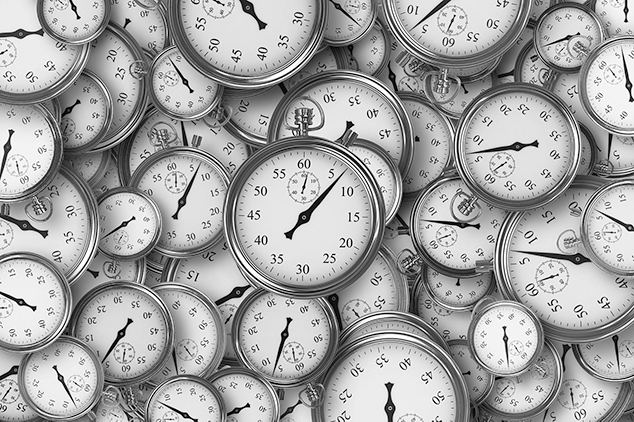The Cult of Busy
When I was young I thought busy people were more important than everyone else. Otherwise, why would they be so busy? I had busy parents and busy bosses, and I assumed they must always have important things to do. It seemed an easy way to see who mattered and who didn’t. The busy must matter more, and the lazy mattered less.
This is the cult of busy. That simply by always seeming to have something to do, we all assume a person is important or successful. It explains the behavior of many people at work. By appearing busy, others bother them less, and simultaneously believe they’re doing well at their job. It’s quite a trick.
I now believe the opposite to be true. Or the near opposite. Here’s why:
- Time is the singular measure of life. It’s one of the few things you can not get more of. Knowing how to use it well is possibly the most important skill you can have.
- The person who gets a job done in one hour will seem less busy than the one who can only do it in five. How busy a person seems is not necessarily indicative of the quality of their results. Someone who is better at something might very well seem less busy, because they are more effective. Results matter more than the time spent to achieve them.
- Being in demand can have good and bad causes. Someone with a line of people waiting to talk to them outside their office door at work seems busy, and therefore seems important. But somehow the clerk running the slowest supermarket checkout line in the universe isn’t praised in the same way; it means they’re ineffective. People who are at the center of everything aren’t necessarily good at what they do (although they might be). The bar of being busy falls far well below the bar of being good.
- The compulsion to save time may lead nowhere. If you’re always cutting corners to save time, when exactly are you using the time you’ve saved? There is an illusion that some day in the future you get back all the time you’ve squirreled away in one big chunk. I don’t think time works this way. For most Americans, it seems most of our time savings goes straight into watching television. That’s where all the time savings we think we get actually goes.
- The phrase “I don’t have time for…” should never be said. We all get the same amount of time every day. If you can’t do something it’s not about the quantity of time. It’s really about how important the task is to you. I’m sure if you were having a heart attack, you’d magically find time to go to the hospital. That time would come from something else you’d planned to do, but now seems less important. This is how time works all the time. What people really mean when they say “I don’t have time” is this thing is not important enough to earn my time. It’s a polite way to tell people that they, or their request, is not important to you.
This means people who are always busy are time poor. They have a time shortage. They have time debt. They are either trying to do too much, or they aren’t doing what they’re doing very well. They are failing to either a) be effective with their time b) don’t know what they’re trying to effect, so they scramble away at trying to optimize for everything, which leads to optimizing nothing.
On the other hand, people who truly have control over time have some in their pocket to give to someone in need. They have a sense of priorities that drive their use of time and can shift away from the specific ordinary work that’s easy to justify, in favor of the more ethereal, deeper things that are harder to justify. They protect their time from trivia and idiocy. These people are time rich. They provide themselves with a surplus of time. They might seem to idle, or to relax, more often than the rest, but that may be a sign of their mastery not their incompetence.
I deliberately try not to fill my calendar. I choose not to say Yes to everything. To do so would make me too busy, and I think, less effective at what my goals are. I always want to have some margin of my time in reserve, time I’m free to spend in any way I choose, including doing almost nothing at all. I’m free to take detours. I’m open to serendipity. Some of the best thinkers throughout history had some of their best thoughts while going for walks, playing cards with friends, little things that generally would not be considered the hallmarks of busy people. It’s the ability to pause, to reflect, and relax, to let the mind wander, that’s perhaps the true sign of time mastery, for when the mind returns it’s often sharper and more efficient, but most important perhaps, happier than it was before.
This post was inspired by Marrissa Bracke‘s essay Why I stopped working with busy people.
Also see:
- The Distraction Free Life
- Why You are Not Drowning in Information
- In Praise of Being Idle, Bertrand Russel
- How To Be Idle: a Loafers Manifesto, Tom Hodgkinson
- Work vs Progress


